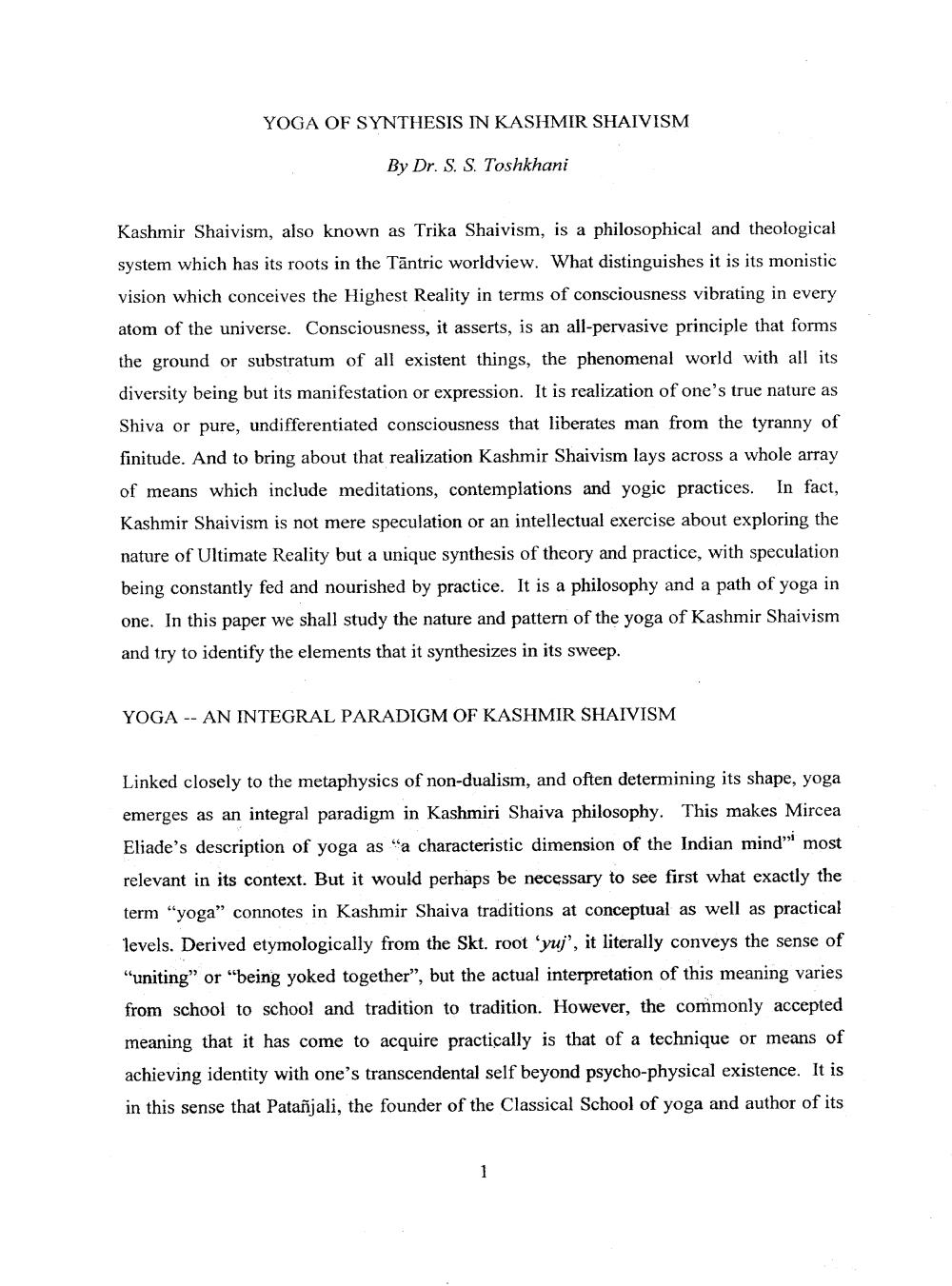Book Title: Yoga of Synthesis in Kashmir Shaivam Author(s): S S Toshkhani Publisher: S S Toshkhani View full book textPage 1
________________ YOGA OF SYNTHESIS IN KASHMIR SHAIVISM By Dr. S. S. Toshkhani Kashmir Shaivism, also known as Trika Shaivism, is a philosophical and theological system which has its roots in the Tāntric worldview. What distinguishes it is its monistic vision which conceives the Highest Reality in terms of consciousness vibrating in every atom of the universe. Consciousness, it asserts, is an all-pervasive principle that forms the ground or substratum of all existent things, the phenomenal world with all its diversity being but its manifestation or expression. It is realization of one's true nature as Shiva or pure, undifferentiated consciousness that liberates man from the tyranny of finitude. And to bring about that realization Kashmir Shaivism lays across a whole array of means which include meditations, contemplations and yogic practices. In fact, Kashmir Shaivism is not mere speculation or an intellectual exercise about exploring the nature of Ultimate Reality but a unique synthesis of theory and practice, with speculation being constantly fed and nourished by practice. It is a philosophy and a path of yoga in one. In this paper we shall study the nature and pattern of the yoga of Kashmir Shaivism and try to identify the elements that it synthesizes in its sweep. YOGA -- AN INTEGRAL PARADIGM OF KASHMIR SHAIVISM Linked closely to the metaphysics of non-dualism, and often determining its shape, yoga emerges as an integral paradigm in Kashmiri Shaiva philosophy. This makes Mircea Eliade's description of yoga as "a characteristic dimension of the Indian mind” most relevant in its context. But it would perhaps be necessary to see first what exactly the term "yoga” connotes in Kashmir Shaiva traditions at conceptual as well as practical levels. Derived etymologically from the Skt. root 'yuj', it literally conveys the sense of "uniting" or "being yoked together”, but the actual interpretation of this meaning varies from school to school and tradition to tradition. However, the commonly accepted meaning that it has come to acquire practically is that of a technique or means of achieving identity with one's transcendental self beyond psycho-physical existence. It is in this sense that Patañjali, the founder of the Classical School of yoga and author of itsPage Navigation
1 2 3 4 5 6 7 8 9 10 11 12 ... 46
